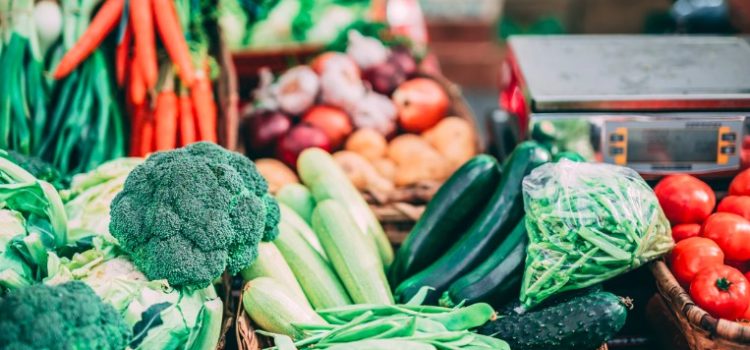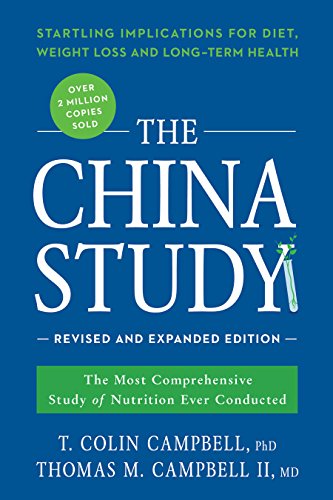

This article is an excerpt from the Shortform summary of "The China Study" by Colin Campbell. Shortform has the world's best summaries of books you should be reading.
Like this article? Sign up for a free trial here .
What is the link between fiber and colon cancer? Is fiber preventative? Or is there something else in fiber-rich foods that helps prevent colon cancer?
We’ll cover how fiber and colon cancer are connected, why fiber supplements aren’t the best preventative measure, and what other dietary factors may be at play in preventing colon cancer.
Fiber and Colon Cancer: The Link
Colorectal cancer, or large bowel cancer (including colon and rectum cancer), is the fourth most fatal cancer in the world. It’s the second most fatal cancer in the U.S., and some researchers say that, by the age of 70, half of all Westerners will get it. Is there something we can do to prevent it?
Dietary Impact on Colorectal Cancer
This is one group of cancers for which the impact of diet is generally well-known, and many doctors have accepted that diet is a leading cause, and prevention, of the disease. Many researchers have focused on the preventative link between fiber and colon cancer.
Following the same pattern as other cancers, only about 1-3% of colon cancers are attributable to genes alone, meaning lifestyle factors (particularly diet) play a huge role in preventing this disease.
Fiber and calcium have each been the focus of multiple studies on colorectal cancer.
The Importance of Fiber
As fiber, which the body can’t digest, pulls water into the intestines, it keeps things running smoothly in the digestive tract and absorbs carcinogenic chemicals. Therefore, consuming lots of fiber protects us from cancers of the intestines. Consequently, there’s been lots of attention given to fiber and colon cancer.
Although fiber has been maligned for hindering iron absorption, it may actually increase your levels of hemoglobin, or iron in the blood.
Studies show that eating ten additional grams of fiber every day can lower your risk of colon cancer by 33%. For reference, 10 grams is the amount of fiber in a cup of raspberries or peas. A cup of most types of beans will give you far more than 10 grams.
Additionally, various studies have shown that increased fiber intake reduces colorectal cancer risk by 42-52%.
We can’t get fiber from animal foods, only plant foods, so there’s a link between plant foods and disease prevention.
Are Fiber Supplements Effective?
Studies indicate that it may be a fiber-rich diet, rather than fiber itself, that has benefits. This is where the research around fiber and colon cancer gets complicated.
Fiber isn’t a single substance. The term includes hundreds of substances that play complex biochemical and physiological roles in the body. It’s hard to clearly demonstrate fiber’s impact on cancer prevention because of its complexity.
Most studies on fiber use whole-food sources, not supplements. Consequently, it’s hard to know if it’s the fiber or the food as a whole that has benefits, as a South African study on colorectal cancer shows.
South African Study on Fiber and Colon Cancer
In 1985, white South Africans got colorectal cancer at seventeen times the rate that black South Africans did. Many researchers thought it was because black South Africans ate a diet high in fiber-rich maize.
But the investigation found that black South Africans were increasingly eating refined maize-meal, which doesn’t have fiber. Currently, black South Africans actually eat less fiber than white South Africans.
Still, black South Africans get colorectal cancer at a lower rate than white South Africans.
This study calls into question the idea that it’s the fiber alone that’s preventative, rather than the plant foods of which fiber is a part.
Later studies showed that white South Africans ate a diet higher in animal protein, fat, and cholesterol. The cancer-promoting effects of animal foods may have counteracted the greater amounts of fiber the white South Africans ate. The link between fiber and colon cancer isn’t straightforward.
The Role of Calcium
Calcium is thought to prevent colorectal cancer through two mechanisms:
- Mechanism #1: Hindering the growth of certain colon cells.
- Mechanism #2: Binding with bile acids, which are thought to accelerate cancer development in the colon.
Because of the belief that calcium prevents large bowel cancers, the dairy industry has promoted dairy products as cancer-fighting foods.
But the China Study demonstrated that rural Chinese don’t consume much calcium. Still, their rates of colon cancer are much lower than those of Americans.
It turns out that the countries that consume the most calcium, which are in Europe and North America, have the highest rates of colorectal cancer.
While calcium may have some impact on the development of colorectal cancer, the benefits are unclear. Dairy’s animal protein and fat content may undermine any advantages of its calcium.
So we’re back to fiber. How exactly are fiber and colon cancer connected? We don’t know for sure, but there seems to be a definite link. To prevent colon cancer, the best thing you can do is incorporate more fiber-rich fruits, vegetables, and grains in your diet.
———End of Preview———

Like what you just read? Read the rest of the world's best summary of "The China Study" at Shortform . Learn the book's critical concepts in 20 minutes or less .
Here's what you'll find in our full The China Study summary :
- Why animal proteins (meat, milk) might cause cancer, diabetes, and other diseases
- Why the medical institution is structured to hide the truth about disease and food
- The precise diet you'll need to eat to live longer and feel happier






